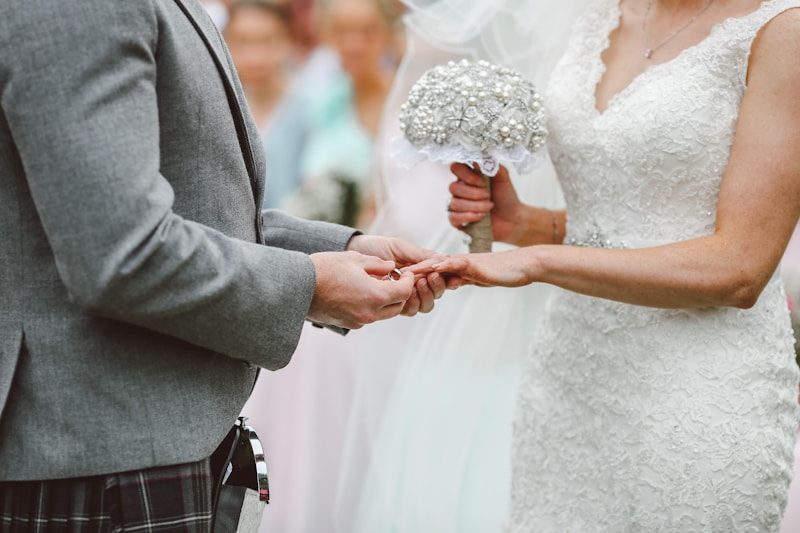Sales Tax Considerations for Wedding Dress Sales: A Comprehensive Guide
Sales Tax Considerations for Wedding Dress Sales: A Comprehensive Guide
Weddings are a time of celebration, beauty, and, unfortunately for many, financial considerations. When planning a wedding, couples often overlook one critical aspect: sales tax on wedding dress sales. This article delves into the various sales tax implications for wedding dress sales, ensuring that both retailers and brides are well-informed. Let's explore how sales tax can impact your wedding budgeting decisions.
Understanding Sales Tax Basics
Sales tax is a consumption tax imposed by the government on the sale of goods and services. In the United States, sales tax rates vary from state to state, which creates complexities, especially for wedding dress purchases that may take place across state lines. For those looking to buy or sell wedding dresses, understanding these nuances is crucial.
1. What is Sales Tax?
Sales tax is a percentage of the sale price of goods. For example, if a wedding dress is priced at $1,000 and the local sales tax rate is 7%, the total cost for the buyer would be $1,070. The seller is then responsible for collecting that $70 in sales tax and remitting it to the state government.
2. State-Specific Sales Tax Rates
Sales tax rates can vary not only from state to state but also by locality. Below is a general overview of some states' sales tax rates applicable to clothing and wedding dresses:
| State | Sales Tax Rate (%) | Special Considerations |
| California | 7.25% - 10.25% | Clothing is generally taxable. |
| New York | 4% + local rates (up to 4.5%) | Wedding dresses are taxable at state and local levels. |
| Texas | 6.25% | Clothing is taxable; no exemptions for wedding dresses. |
| Florida | 6% + local rates | Wedding dresses subject to state sales tax. |
| Illinois | 6.25% + local taxes | Clothing over $110 is taxable. |
As seen in the table, rates vary widely. Understanding your state’s rules can help shoppers avoid surprises at the checkout.
Sales Tax Exemptions
One of the common inquiries couples have is whether wedding dresses can ever be exempt from sales tax. Some states offer special exemptions or lower rates for clothing purchases, while others do not. For instance, in certain states, if a dress is sold during specific tax-free weekends, buyers can save money. It’s advisable to check the local regulations regarding sales tax exemptions for wedding dresses.

Who is Responsible for Collecting Sales Tax?
In most cases, the retailer is responsible for collecting the sales tax from the buyer at the point of sale. However, some online retailers might need to comply with sales tax regulations in states where they have a physical presence or significant economic activity.
Online shoppers should be aware that state-specific sales tax regulations may require the retailer to charge sales tax even if the seller is located elsewhere. Thus, when purchasing from an online retailer, always check if the sales tax is included in the total price.
3. The Importance of Compliance
For retail owners, compliance with sales tax laws is crucial. Failing to collect and remit sales tax properly can lead to penalties, interest, or even audits. Ensuring you are collecting the correct amount and filing tax returns on time is essential for maintaining your business's financial health.
Bridal Shops and Sales Tax Obligations
Bridal shops must navigate a complex landscape when managing their sales tax obligations. Key considerations include:
- Inventory Management: Keeping track of inventory that is taxable versus non-taxable helps streamline the sales process.
- Training Staff: Ensuring that all staff are knowledgeable about the sales tax policies helps avoid mistakes during sales transactions.
- Regular Audits: Conducting regular audits on sales tax collections can help identify any discrepancies or areas for improvement.
Destination Weddings and Sales Tax
Many couples choose destination weddings, often in states different from where they reside. This can lead to confusion regarding sales tax obligations. The general rule is that sales tax is based on the location of the sale. Therefore, if a bride purchases a wedding dress in a destination state, she may be subject to that state’s sales tax, regardless of her home state. Couples should plan accordingly and factor in these additional costs when budgeting for their wedding attire.
Conclusion: Key Takeaways on Sales Tax for Wedding Dresses
Understanding sales tax considerations for wedding dress sales is vital for both buyers and sellers. Here are the key takeaways:
- Know the Sales Tax Rate: Always check the local sales tax rates for wedding dresses in your state or county.
- Consider Exemptions: Explore potential tax exemptions available in your area, especially during promotional periods.
- Plan for Destination Taxes: For destination weddings, research the sales tax obligations in the location of your wedding.
- Compliance is Key: Retailers must stay compliant with sales tax regulations to avoid penalties.
In summary, when planning a wedding, ensure you account for sales tax in your budget. For bridal shops, diligence in managing sales tax obligations can enhance customer satisfaction and protect business viability. With proper knowledge and careful planning, couples can enjoy their wedding shopping experience without unexpected financial burdens.
